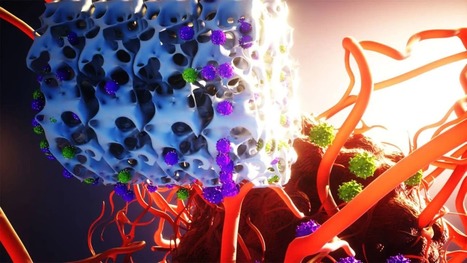Many people are excluded from CAR T cell-based treatments because of its cost. One reason for the high cost is that the manufacturing process is complex, time-consuming and must be individually tailored to each cancer patient. So to address this challenge, the researchers created a biotechnology called Multifunctional Alginate Scaffolds for T cell Engineering and Release (MASTER) that is a biocompatible sponge-like material. To begin treatment, the researchers isolate the patient’s T cells and mix these naive T cells with the modified virus. The researchers pour this mixture onto MASTER, which absorbs it. MASTER is decorated with the antibodies that activate the T cells, so the cell activation process begins almost immediately. Meanwhile, MASTER is surgically implanted into the patient. After implantation, as the T cells become activated, they begin to respond to the modified viruses, which reprogram them into CAR-T cells. MASTER is also imbued with interleukin factors that promote cell proliferation. After implantation, these interleukins begin to leach out, promoting rapid proliferation of CAR-T cells. In a proof-of-concept study involving lymphoma in mice, researchers found that this treatment was faster and more effective than conventional CAR-T cell cancer treatment.





